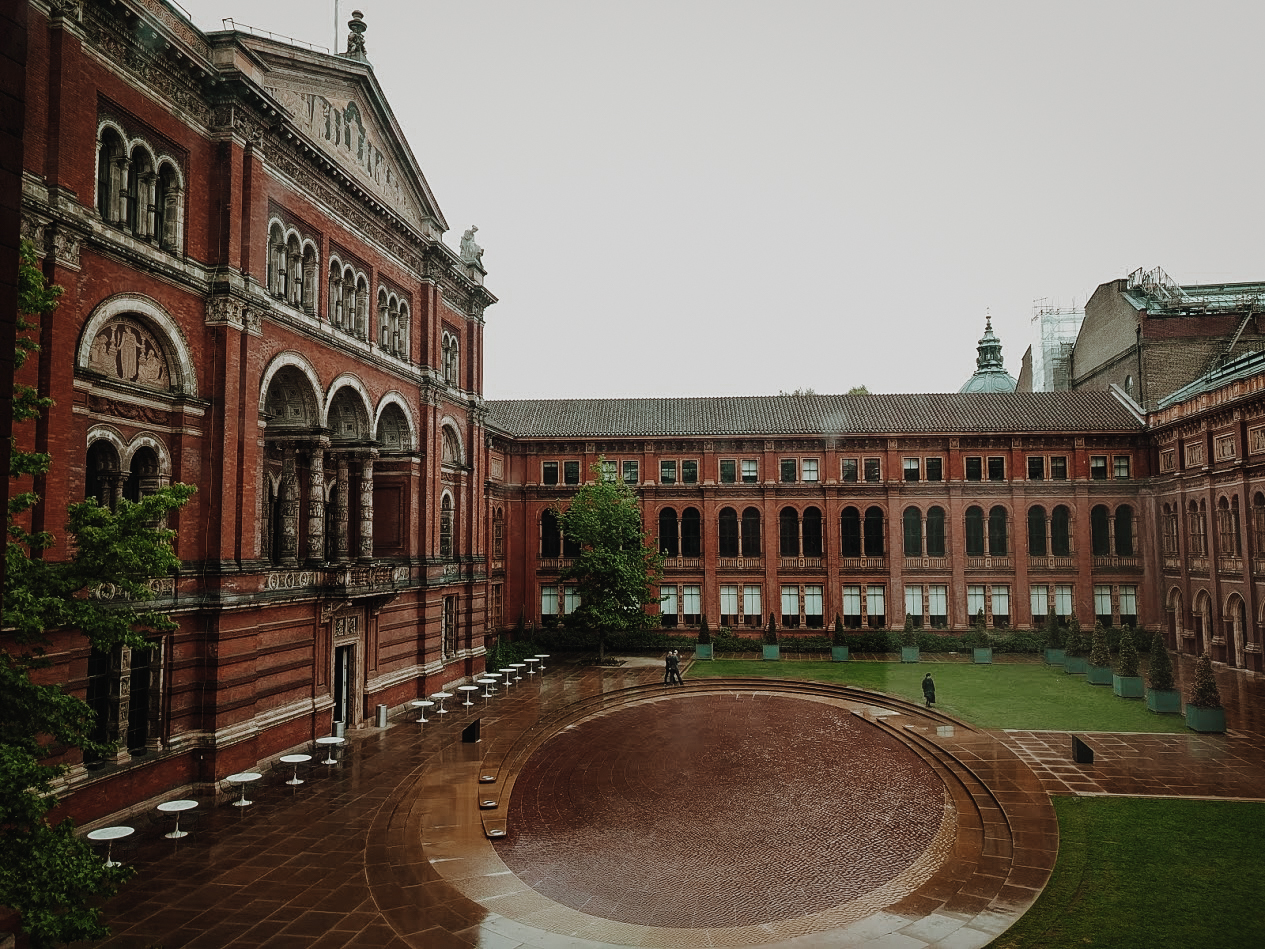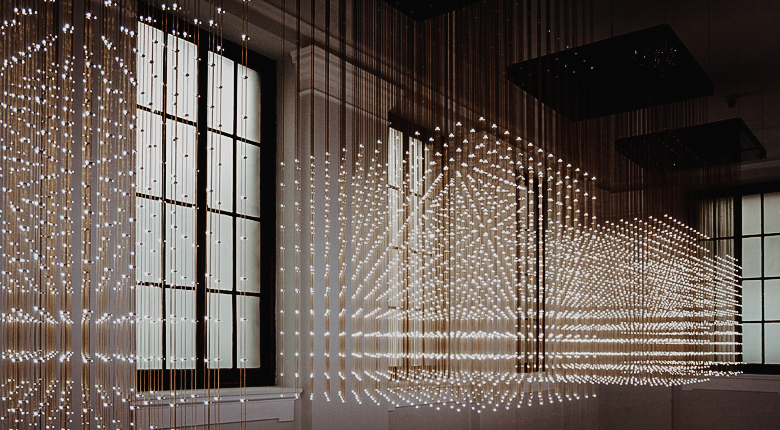Difference between revisions of "Victoria and Albert Museum"
From Londonhua WIKI
| Line 18: | Line 18: | ||
<br> | <br> | ||
The V&A building houses the vast collection of objects, while being a magnificent sight to see on its own. A quick chat with a security guard will let you know that the entire footprint covers 12 acres of land, with galleries on 6 floors and one underground. The total number of galleries in the museum is 145. At the center sits a courtyard and garden that features an outdoor cafe and a water pool. Gallery space is constantly being added or remodeled, with the most recent addition being completed onto the building in 2012, but a total of 4 current galleries are remodeled. | The V&A building houses the vast collection of objects, while being a magnificent sight to see on its own. A quick chat with a security guard will let you know that the entire footprint covers 12 acres of land, with galleries on 6 floors and one underground. The total number of galleries in the museum is 145. At the center sits a courtyard and garden that features an outdoor cafe and a water pool. Gallery space is constantly being added or remodeled, with the most recent addition being completed onto the building in 2012, but a total of 4 current galleries are remodeled. | ||
| + | <br> | ||
| + | <br> | ||
<br> | <br> | ||
===Swarm Study / III=== | ===Swarm Study / III=== | ||
| + | [[File:Swarm Study III VAmuseum.jpg|400px]] | ||
This experimental art exhibit was created by Random International, an art studio that develops interesting and creative displays and exhibits across the world. Swarm Study / III hangs in the ceramics section of the museum and consists of several cubes of hanging brass cords and LEDs. As visitors ascend or descend the stairwell, balls of light will seemingly follow the visitors on their path. | This experimental art exhibit was created by Random International, an art studio that develops interesting and creative displays and exhibits across the world. Swarm Study / III hangs in the ceramics section of the museum and consists of several cubes of hanging brass cords and LEDs. As visitors ascend or descend the stairwell, balls of light will seemingly follow the visitors on their path. | ||
| − | + | <br> | |
<br> | <br> | ||
| Line 37: | Line 40: | ||
<br> | <br> | ||
<br> | <br> | ||
| + | |||
=References= | =References= | ||
If appropriate, add a references section | If appropriate, add a references section | ||
Revision as of 13:14, 15 May 2017
V&A Museum
The Victoria and Albert museum (V&A) is a free museum in Kensington, surrounded by the Natural History Museum, and the Science Museum. Named after Queen Victoria and Prince Albert in 1852, the V&A is home to the words largest collection of art and design artifacts.
 |
Contents
Background
The Building
The V&A building houses the vast collection of objects, while being a magnificent sight to see on its own. A quick chat with a security guard will let you know that the entire footprint covers 12 acres of land, with galleries on 6 floors and one underground. The total number of galleries in the museum is 145. At the center sits a courtyard and garden that features an outdoor cafe and a water pool. Gallery space is constantly being added or remodeled, with the most recent addition being completed onto the building in 2012, but a total of 4 current galleries are remodeled.
Swarm Study / III
 This experimental art exhibit was created by Random International, an art studio that develops interesting and creative displays and exhibits across the world. Swarm Study / III hangs in the ceramics section of the museum and consists of several cubes of hanging brass cords and LEDs. As visitors ascend or descend the stairwell, balls of light will seemingly follow the visitors on their path.
This experimental art exhibit was created by Random International, an art studio that develops interesting and creative displays and exhibits across the world. Swarm Study / III hangs in the ceramics section of the museum and consists of several cubes of hanging brass cords and LEDs. As visitors ascend or descend the stairwell, balls of light will seemingly follow the visitors on their path.
The Collection
The museum houses the largest collection of art and design items in the world, but only displays about half of that in the physical space. However, the number that is displayed is quite significant at 2,280,000 items spread across the 145 galleries. This collection is broken up into categories by type of items, such as Ceramics, textiles, metals, jewelry, furniture, sculptures and many more. The items in the categories are then also placed by origin, with with locations such as Europe, North American, Asia and Africa. The museum's oldest items are up to 5,000 years old, while some parts of the collection are objects from as recent as 2017.
Cast Courts
Pink Floyd
References
If appropriate, add a references section
External Links
If appropriate, add an external links section
Image Gallery
If appropriate, add an image gallery